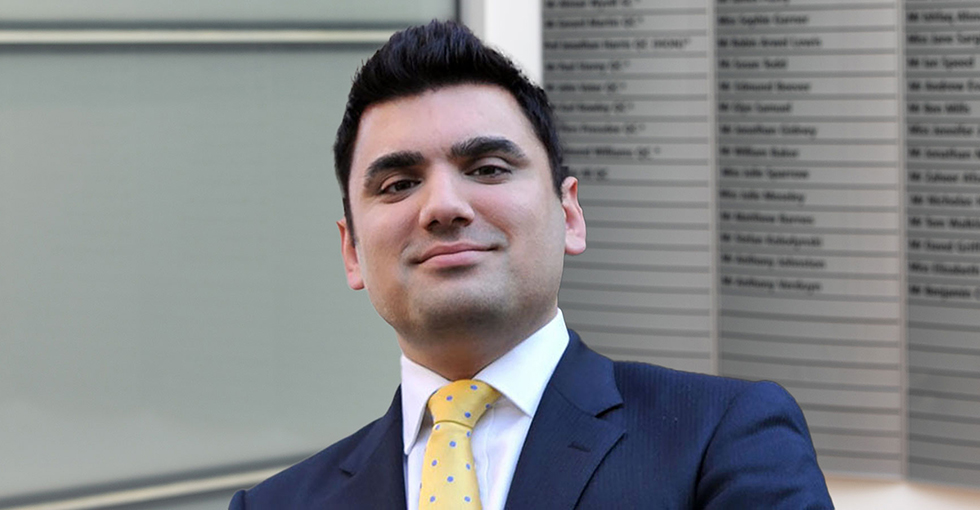The decision in Glaser v Atay [2024] EWCA Civ 1111 is a rare reported case on direct access, and likely to cause concern to barristers offering their services under the scheme.
This article, written by Iqbal Mohammed, looks at the decision and offers some practical points for barristers who offer services through direct access.
Summary
The conclusion of the Court of Appeal was:
the contract was inadequate for the sort of case for which it was used. I do not mean to say that counsel can never stipulate for payment if a case goes off at a late stage… Nothing I have said is intended to prevent counsel from devising and agreeing with their clients contracts that fairly balance their own interests in not being left with gaps in their diaries with the interests of their clients in not paying for work that is not carried out.
Essentially, where a barrister sets a non-refundable “fixed fee”, no matter how early or late the work is cancelled, a court may consider such a term to be unfair.
Facts
The claimants, leading and junior counsel, were engaged under public access by Mrs Atay in financial remedy proceedings against her husband, Mr Atay. The final hearing was listed for 10 days commencing 21 September 2020.
On 7 July, the claimants’ clerks emailed Mrs Atay two letters of engagement, the contracts in this case. The letters proposed fees of £90k and £45k plus VAT respectively. The two letters were materially the same.
The terms in issue were (‘the Payment Term’):
The work you are instructing me to carry out is:
Preparation of and representation at the PTR hearing on the 10 July 2020, and the 10 [sic] Final hearing commencing from the 21 September 2020, listed at the Central Family Court.
For the avoidance of doubt, the fee covers the above mentioned work and therefore if the hearing concludes early or is adjourned to another date or does not go ahead for any reason beyond our control, then the full fee is still payable and another fee will be payable for any adjourned hearing.
The fees:
My fee for accepting the instruction to appear as an advocate on the occasions described above will be £90,000 plus VAT. You and I agree that I will not attend the hearing unless you have paid the fee in advance.
The letter then set out stages of payment, the bulk payable by 31 August, or about 3 weeks before the hearing. Before this, her husband applied to adjourn the final hearing. A judge on 26 August 2020 granted the application and, as a result, the 10 day hearing was no longer listed.
Mrs Atay then dispensed with the services of the claimants and refused to pay the remaining stages.
Crucially, this cancellation was before the barristers planned to start preparation on 7 September.
The claimants sued for their unpaid fees under the contracts and, alternatively, sued for “lesser but similar sums” pursuant to implied terms or quantum meruit.
Trial
HHJ Berkley tried the claim and found the Payment Term unfair as the whole fee was payable even if no work was done and was “disproportionately high in comparison to the unperformed services.” However, he awarded the claimants 70% of the fee under quantum meruit, reflecting the work which was done.
First Appeal
The claimants appealed arguing that the Payment Term was not assessable for fairness or, if it was, it was fair. Mrs Atay cross-appealed her liability under quantum meriut. Turner J gave a detailed judgment (with a very helpful graph illustrating how to consider unfair terms under the CRA 2015) in Glaser & Anor v Atay [2023] EWHC 2539 (KB).
The high court upheld the Payment Term as unfair. Further, the court reversed the trial judge on quantum meruit and held that as the Payment Term was removed from the contract, it fell “to be treated as providing for a lump sum payment for the services of preparation and appearance at trial.” As such, quantum meruit could not succeed for partial performance, where the hearing did not take place; see paras 68-77. Further, Turner J held, with respect to the CRA 2015, quantum meruit:
“would have the potential to disincentivise traders from ensuring that the terms under which they contracted were fair. Otherwise they could opt to incorporate unfair terms in the hope that they would not be challenged but confident that there would be a safety net providing for the payment of a reasonable sum in the event that they were.”
Having been ordered to repay Mrs Atay the judgment sums, the claimants appealed. The Court of Appeal upheld Turner J, dismissing the appeal for the following reasons.
Was the payment term excluded from an assessment of fairness?
Section 62(1) provides that an unfair term is not binding on the consumer. A term is unfair under s62(4) “if, contrary to the requirement of good faith, it causes a significant imbalance in the parties’ rights and obligations under the contract to the detriment of the consumer.” Fairness is considered in accordance with s62(5).
However, under s64, a term setting a price does not fall within s62 insofar as “the assessment is of the appropriateness of the price payable under the contract by comparison with the goods, digital content or services supplied under it.” This is the “safe harbour” provision.
Put another way, section 62 is not intended to provide judicial control of prices.
However, safe harbour is only available where the term is both transparent, prominent and not on the grey list. Schedule 2 provides a non-exhaustive list of terms likely to be unfair. This includes:
A term which has the object or effect of requiring that, where the consumer decides not to conclude or perform the contract, the consumer must pay the trader a disproportionately high sum in compensation or for services which have not been supplied
Finally, under s67: while an unfair term is not binding, the contract continues, so far as practicable, to have effect in every other respect.
In short, the claimants argued that the court was assessing the price of their services. The court rejected this argument and held that the Payment Term was about whether the price was payable even though counsel were not required to do the work.
The Court of Appeal approved of Turner J and determined that:
the core of the bargain was that the claimants’ fees were £90,000 and £45,000, respectively, for preparing for and representing the claimant at the hearing. Accordingly, it would not have been open to the defendant to seek to challenge before the courts the level of fees nor the nature and extent of the work involved in preparation for and appearance at trial.
…the term concerning the timing of payment and the consequences of the case not going ahead, although important, does not, in my view, fall within the parameters of section 64.
Given this decision, the Payment Term was susceptible for assessment for unfairness.
Was the Payment Term unfair?
Firstly, here, the Court of Appeal agreed payment of the full fees (following the cancellation by Mrs Atay) was “a disproportionately high sum,” making the Payment Term, a grey term. This part of the judgement offers the most important guidance to barristers accepting work under direct access (paras 56-83).
Terms requiring payment of fees (or the retention of fees) following the client’s cancellation of the work do not themselves fall into the grey list. The problem was that the Payment Term “gave no breakdown” of how it was made up. An obvious problem with this was that rolling up the refreshers into one fee meant that Mrs Atay was required to pay for 9 days of court attendance which were no longer required and which could be rebooked with other clients (at least some of these days in fact were).
The court considered that:
56…. Taking Mr Glaser’s fees as an example… 9 days’ refreshers would therefore have accounted for £40,500 of the total £90,000, and allowing the same for the first day of the trial would take the total to £45,000. That leaves the other £45,000 to cover the pre-trial review and the 10 days’ preparation… [leaving] £40,000 for the 10 days’ preparation and any other work, which is 80 hours at Mr Glaser’s rate of £500 per hour…
57. Using that as a reasonably reliable guide to the way in which the fees were made up, one can see that when counsel were disinstructed on 31 August, Mr Glaser had done the work for the pre-trial review… and spent about 15 to 20 hours thinking about the case. But he had not started on the 10 days’ preparation for the final hearing that he had allowed for, nor of course did he provide any representation at the hearing as it did not go ahead. Mrs Atay was nevertheless being asked to pay £85,000 for these services which she had not received. That seems to me plainly disproportionately high.
Therefore, the Court of Appeal upheld the High Court’s decision that this was grey list term. However, this did not mean it was automatically unfair, rather “a suggestion of unfairness” hung over it. None of this was necessary as the Payment Term did not have safe harbour so was to be assessed in substance any way, however, the court considered it nevertheless.
Secondly, the court applied s62(4) to assess the substance of the Payment Term—did it create a significant imbalance in the parties’ obligations to the detriment of the consumer?
On this, both appellate courts agreed with the trial judge who found that the Payment Term is an “all or nothing” term, weighing 100% in favour of the barrister. His assessment was that:
it skewed the potential advantage to be gained by the barristers under the contract so far away from the consumer’s interests, and so far in the barristers’ favour, that it did not satisfy the test of fairness…Mrs Atay would have been liable to Mr Glaser for the full fee of £108,000 despite him having done no work and in circumstances where his diary had only been blocked out for 15 days, some 2 months ahead of the hearing date.
The lack of graduation was a feature in Turner J’s determination as well. He had held:
59… In short, the claimants were entitled to be paid far in advance for two weeks’ preparation and participation thereafter in a two-week trial. Even if there had been no work done whatsoever, the fees would have remained payable and subject to no element of reimbursement at all. Counsel would thus be entitled to take on alternative remunerative work during the relevant period and any sums thus earned would not go towards reducing the liability of the defendant. I accept that it is not always easy for counsel, particularly leading counsel, to find work at relatively short notice but it is by no means impossible.
60 In contrast, the financial risk of the trial not proceeding was borne entirely by the defendant…
The Court of Appeal agreed with this. A key aspect of the imbalance created by the Payment Term derived from its lack of recognition of the risk that a hearing may not be effective:
That involves risks for both parties…. The Payment Term however resolves these respective risks wholly in favour of counsel, as both judges said, and places the entire risk of a hearing being ineffective on the client.
In contrast, counsel were free to seek other work but there was no mechanism in the contract under which Mrs Atay’s “for the fees can be abated to the extent that he was able to obtain other work.”
Thirdly, was the Payment Term contrary to good faith? This assessment did not impugn the professional propriety of the barristers (both appellate courts stressed this at para 109). Rather, the question was whether such a term would be agreed by a “well-informed and well-advised client.” The court did not disturb Turner J’s concerns about the imbalance of power between counsel and the client:
- The terms were not negotiated freely and were the claimants’ terms
- The risks of any given trial being rendered ineffective are much more familiar to members of the legal profession than to lay clients
- Given the client’s status as a party in litigation, the claimants were probably better placed to look after their own interests than the other way round
This meant that the Payment Term met both requirements of s62(4) and the Court of Appeal upheld that assessment. Therefore, the Court of Appeal dismissed the appeal and the claimants received none of the contracted fees due after cancellation.
What does this all mean for direct access?
There are three crucial points to bear in mind. Firstly, unlike referred work, direct access work requires barristers to think through and draft contracts which comply with the CRA 2015. The claimants used wording very similar to the standard wording in the bar council’s template letter. While a good start, this is inadequate for big pieces of work.
Barristers that undertake regular work under direct access should draft their own terms and not rely on the clerks (this case illustrating the point very well). Most importantly, for larger pieces of work, careful thought must be given to how the fees are expressed and how the payment terms are structured. These two are particularly important.
Secondly, with respect to the fee term, using a lump sum makes it harder to divide the fees incurred in cases where there is partial performance. It is likely far better to break down the fee to explain how its arrived at. Especially where the work has several components (e.g. preparation, conference, drafting skeleton argument, etc). That way, a link can be made between the fee, the payment stage and the liability of the client.
Further, this has the benefit of explaining the fees to the client. While a court has no power to assess the “value” of the fees for the work agreed, this case shows that explaining why the fee is what it is can be extremely helpful in determining the fairness of the fees incurred in the event that the work is cancelled.
Thirdly, connected to the first two points, careful thought should be given to when the fees should be incurred. Most clients will have a 14 day cooling off period (this can be waived in certain circumstances). However, contracting the whole fee, especially a very large one, to be incurred immediately after is unlikely to be fair. It would be far better to agree stages by which the fee is incurred. That offers balance to the interests of both the barrister and client. It also allows for the fee to reflect the loss or work of the barrister.
By way of illustration, using the facts of this case, the fee may be expressed as: £90,000 plus VAT comprising specific sums attributed to (1) reading-in and preliminary preparation; (2) conference and associated preparation; (3) drafting of chronology (4) preparation for hearing; (5) research and drafting skeleton. The payment terms can then reflect these components and be incurred in stages or when the work is due or performed. That way, should the barrister complete stage (3), the client is liable for all fees to that point but saves the balance as that work was unperformed.
If barristers wish to incorporate a cancellation charge or a mechanism for charging for days lost which cannot be rebooked, or requiring the whole fee to be incurred very shortly before the hearing (which is both common and expressly permitted by the Court of Appeal) then specific terms can be considered for those cases.
This judgment shows that the practices which dominate referred work cannot easily, or readily, be transposed to direct access.
Whilst every effort has been taken to ensure that the law in this article is correct, it is intended to give a general overview of the law for educational purposes. Readers are respectfully reminded that it is not intended to be a substitute for specific legal advice and should not be relied upon for this purpose. Please also note that this article represents the opinion of the author and does not necessarily reflect the view of any other member of St Philips Chambers.









